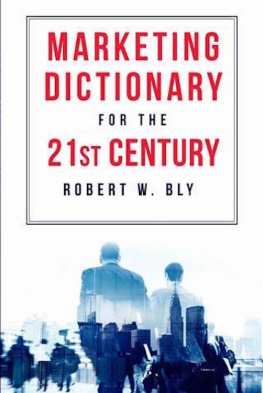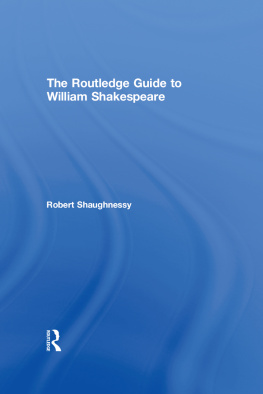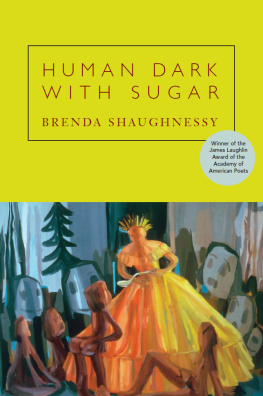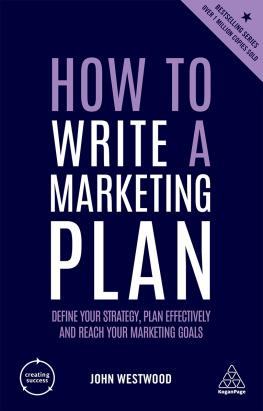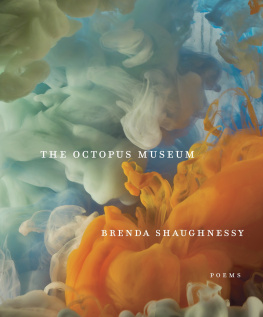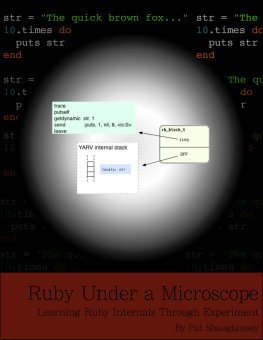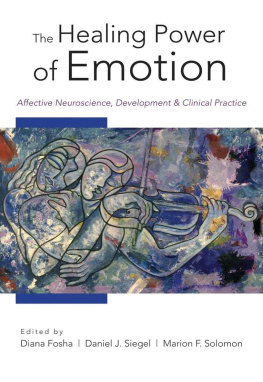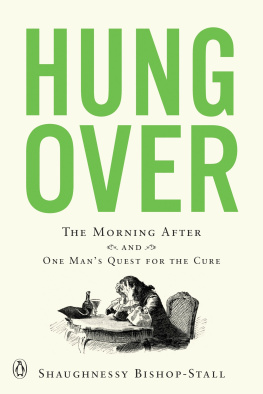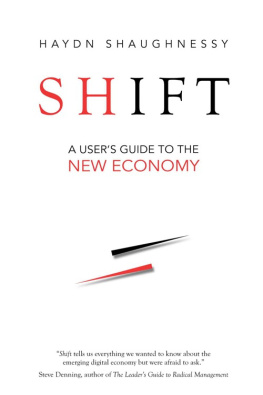John O’Shaughnessy - The Marketing Power of Emotion
Here you can read online John O’Shaughnessy - The Marketing Power of Emotion full text of the book (entire story) in english for free. Download pdf and epub, get meaning, cover and reviews about this ebook. year: 2002, publisher: Oxford University Press, genre: Romance novel. Description of the work, (preface) as well as reviews are available. Best literature library LitArk.com created for fans of good reading and offers a wide selection of genres:
Romance novel
Science fiction
Adventure
Detective
Science
History
Home and family
Prose
Art
Politics
Computer
Non-fiction
Religion
Business
Children
Humor
Choose a favorite category and find really read worthwhile books. Enjoy immersion in the world of imagination, feel the emotions of the characters or learn something new for yourself, make an fascinating discovery.

- Book:The Marketing Power of Emotion
- Author:
- Publisher:Oxford University Press
- Genre:
- Year:2002
- Rating:5 / 5
- Favourites:Add to favourites
- Your mark:
- 100
- 1
- 2
- 3
- 4
- 5
The Marketing Power of Emotion: summary, description and annotation
We offer to read an annotation, description, summary or preface (depends on what the author of the book "The Marketing Power of Emotion" wrote himself). If you haven't found the necessary information about the book — write in the comments, we will try to find it.
The Marketing Power of Emotion — read online for free the complete book (whole text) full work
Below is the text of the book, divided by pages. System saving the place of the last page read, allows you to conveniently read the book "The Marketing Power of Emotion" online for free, without having to search again every time where you left off. Put a bookmark, and you can go to the page where you finished reading at any time.
Font size:
Interval:
Bookmark:
The Marketing Power of
Emotion
John OShaughnessy
Nicholas Jackson OShaughnessy
OXFORD UNIVERSITY PRESS
The Marketing Power of Emotion
This page intentionally left blank
THE
M A R K E T I N G
POWER
of
EMOTION
John OShaughnessy
Nicholas Jackson OShaughnessy
2003
Oxford
New York
Auckland
Bangkok
Buenos Aires
Cape Town
Chennai
Dar es Salaam
Delhi
Hong Kong
Istanbul
Karachi
Kolkata
Kuala Lumpur
Madrid
Melbourne
Mexico City
Mumbai
Nairobi
So Paulo
Shanghai
Taipei
Tokyo
Toronto
Copyright 2003 by Oxford University Press, Inc.
Published by Oxford University Press, Inc.
198 Madison Avenue, New York, New York, 10016
www.oup.com
Oxford is a registered trademark of Oxford University Press All rights reserved. No part of this publication may be reproduced, stored in a retrieval system, or transmitted, in any form or by any means, electronic, mechanical, photocopying, recording, or otherwise, without the prior permission of Oxford University Press.
Library of Congress Cataloging-in-Publication Data
OShaughnessy, John.
The marketing power of emotion / by John OShaughnessy and Nicholas Jackson OShaughnessy.
p.
cm.
Includes index.
ISBN 0-19-515056-2
1. Consumer behavior.
2. ConsumersPsychology.
3. MarketingPsychological
aspects.
4. AdvertisingPsychological aspects.
5. Decision makingPsychological
aspects.
6. EmotionsEconomic aspects.
I. OShaughnessy, Nicholas J., 1954
II. Title.
HF5415.32 .0743 2002
658.8342dc21
2002070905
9 8 7 6 5 4 3 2 1
Printed in the United States of America
on acid-free paper
Preface
We all acknowledge the pervasiveness of emotion in our lives, and shopping is no exception. What has been missing is a systematic exposition of the role played by emotion in consumer behavior. Where there have been books on the subject, the concept of emotion has been regarded as unproblematic, with no model proposed that explains how and in what ways emotion operates. This book aims to >ll the gap. This is helped by the recent increased interest in the subject in psychology, neuroscience, and philosophy. In fact, it can be said that emotion is now a hot topic. The renaissance of interest in emotion has endured beyond the usual quarantine period for academic fads and fashions. In marketing, there is a large and growing body of academics who are anxious to move away from the view of the highly rational consumer that saturates the marketing literature and to formally concede that the calculating-machine model of the consumer is a myth.
In the practice of marketing (as opposed, in general, to academic texts on marketing) there seems to be a roughly equal
vi
split between those who perceive consumers as mainly emotional and those whose perspective of the consumer is based on something approximating the rational choice model of the economist. Perhaps this distinction is commonly used in thinking about other peoples and nations. Plato and his fellow Athenians regarded Ionians as emotional, only concerned with the appearance of things. In contrast, the Athenians had an image of themselves as highly rational, which automatically proclaimed their superiority! There is a danger in treating consumers as purely rational, focused solely on technical and economic criteria, and so perceiving them as bundles of >xed wants that marketing sets out to identity, >lter, map, and satisfy. The consumers motivational capacities are made up not only of a set of wants and needs but also the capacity to imagine, a general yearning for novelty as well as stability, and a disposition to be moved by the emotional resonance of events. Consumers have an underlying appetite for an in>nite number of products to meet latent wants. The purely rational model presupposes that consumers are not in?uenced by either the way products are presented or the emotional context of buying.
The argument of this book is that emotion is always a factor in decision-making and that rationality will always be invaded by emotional in?uences.
This book is about the signi>cance of emotion in marketing and consumer experience. It sees consumer experience as emotion-drenched; no experience is completely empty of emotion, and no pure rationality is ever at work. Emotion is never a semidetached adjunct to consumer processes.
There are two audiences for this book, the managerial and the academic, and we have sought an exposition that is intelligible and meaningful to both.
For professionals in consumer marketing, this work o=ers something fresh in delineating the power of emotion in marketing, enabling practitioners to better interpret the perplexing surfaces of consumer behavior by understanding emotional in?uences. Academics in marketing are all too aware of the absence of any systematic account of the role played by emotion in consumer behavior, an absence partly accounted for by the neglect of emotion in the mainstream approach to consumer psychology, namely, the information-processing approach of cognitive psychology. This is not surprising, given an approach that is intent on exploiting the metaphor of the mind as a computer; to place emotion onto such a metaphor would always be an illicit graft.
We thank various colleagues and former colleagues who have contributed to improving versions of this book: Morris Holbrook, Gordon Foxall, Roger Dickinson, John Whitney, and others who o=ered encouragement after reading the manuscript. We would also like to thank the Journal of Macromarketing, which published the substance of our section in chapter 7 on the nation as a brand in a previous article.
Contents
This page intentionally left blank
The Marketing Power of Emotion
This page intentionally left blank
Marketings Interest in Emotion
Marketing folklore suggests that emotion can stimulate buying interest, guide choices, arouse buying intentions, and in?uence future buying decisions. All these popular beliefs about the power of emotion have received research support. Thoughts about buying are not listless mental acts. They can be exciting and can involve strong likes and dislikes, anxieties, and aspirations. Just think about the emotional component of buying a new car. Emotions intensify wants and desires and intensify motivation. Even ethical behavior can be suppressed because of a failure to generate the emotion needed to motivate moral action.
Emotion is not an aberrant element when making buying
decisions but a necessary condition if decisions are not to be continually postponed. The emotional is so paired with making trade-o=s in decision-making that it is impossible to identify situations where deliberated decisions do not have an emo
This is true even in the hard sciences. As
THE MARKETING POWER OF EMOTION
Horgan says: It has become a truism by now that scientists are not mere knowledge acquisition machines; they are guided by emotion and intuition as well as by cold reason and calculation.
Elster dramatically sums up the importance of emotions as follows: Emotions matter because if we did not have them nothing else would matter.
Creatures without emotion would have no reason for living, nor, for that matter, for committing suicide. Emotions are the stu= of life.... Emotions are the most important bond or glue that links us to others.... Objectively, emotions matter because many forms of human behavior would be unintelligible if we did not see them through the prism of emotion.
Next pageFont size:
Interval:
Bookmark:
Similar books «The Marketing Power of Emotion»
Look at similar books to The Marketing Power of Emotion. We have selected literature similar in name and meaning in the hope of providing readers with more options to find new, interesting, not yet read works.
Discussion, reviews of the book The Marketing Power of Emotion and just readers' own opinions. Leave your comments, write what you think about the work, its meaning or the main characters. Specify what exactly you liked and what you didn't like, and why you think so.


